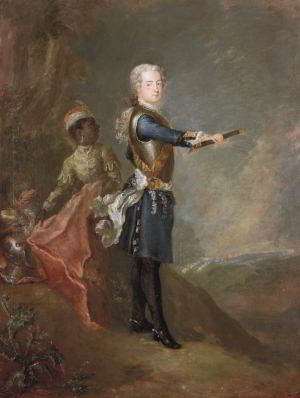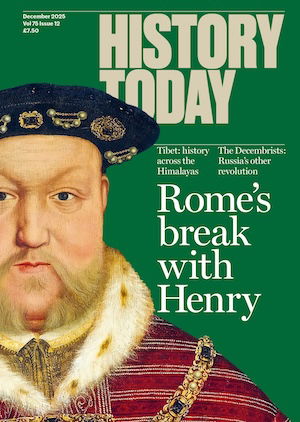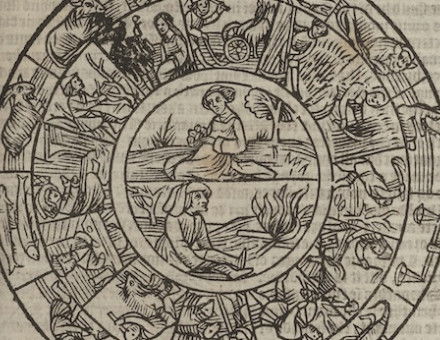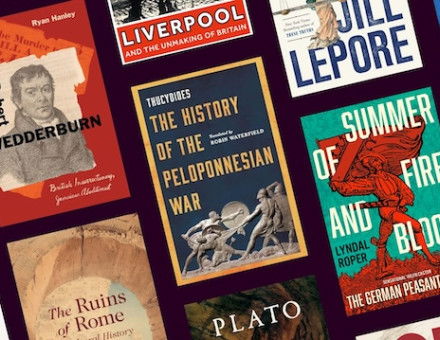Frederick the Great comes into the world
Frederick the Great, the man who made Prussia a leading European power, was born on January 24th, 1712.
 Members of the Hohenzollern dynasty were Margraves of Brandenburg from 1411 and officially kings ‘in’ Prussia from 1701. The one who made Prussia a leading European power was born in a freezing cold winter in the palace at Potsdam, just outside Berlin, son of Frederick William I. He had what can be described with understatement as a difficult upbringing. His father was a ruthless puritanical martinet with a ferocious temper and not entirely sane. He had admirable qualities as an efficient ruler, but he held his son’s intellectual and artistic abilities in contempt, despised him as a weakling and did his best to beat him, literally, into a man.
Members of the Hohenzollern dynasty were Margraves of Brandenburg from 1411 and officially kings ‘in’ Prussia from 1701. The one who made Prussia a leading European power was born in a freezing cold winter in the palace at Potsdam, just outside Berlin, son of Frederick William I. He had what can be described with understatement as a difficult upbringing. His father was a ruthless puritanical martinet with a ferocious temper and not entirely sane. He had admirable qualities as an efficient ruler, but he held his son’s intellectual and artistic abilities in contempt, despised him as a weakling and did his best to beat him, literally, into a man.
The boy was known in the family as Fritz. His mother was Sophia Dorothea of Hanover, whose father would soon be George I of England. Educated and sophisticated, she was kind and loving to her son and his sister Wilhelmine, who was two years older. They talked to her in French, which she taught them was the language of cultivated people. Only the lower orders spoke German. She did her best to protect them from their father, who hated the French, was fanatically punctual, dressed in the simplest manner and disapproved of fashionable clothes or luxury of any kind. He kept his finances and his officials in strict order and spent much of his day drilling regiments at Potsdam.
Young Fritz had a French tutor who encouraged his love of reading – Greek and Roman classics, poetry and philosophy. He wrote poetry himself, played the flute well and hated hunting. His father frequently caned him in public and subjected him to savage mockery in front of the troops. In 1730, when he was 18, Fritz planned to escape to England with an army officer friend, Hans Hermann von Katte. The scheme was discovered and Frederick William had them both taken to the fortress of Küstrin, where Fritz was forced to watch as his friend was beheaded. Fritz’s own life was spared, but he was subjected to an even more rigorous regime than before and did his best to make his peace with his father. In 1733 he dutifully married Princess Elisabeth Christina of Brunswick on his father’s orders, though he liked nothing about her.
At last in 1740 Frederick William died and Fritz succeeded him as Frederick II at the age of 28. In a reign of more than 45 years he established a reputation as a brilliant military commander, played a key role in European politics, substantially increased Prussia’s territory and earned the admiration of many European intellectuals, including his friend Voltaire, as an ideal example of enlightened despotism. He was 74 when he died at Potsdam in 1786.
From the archive




